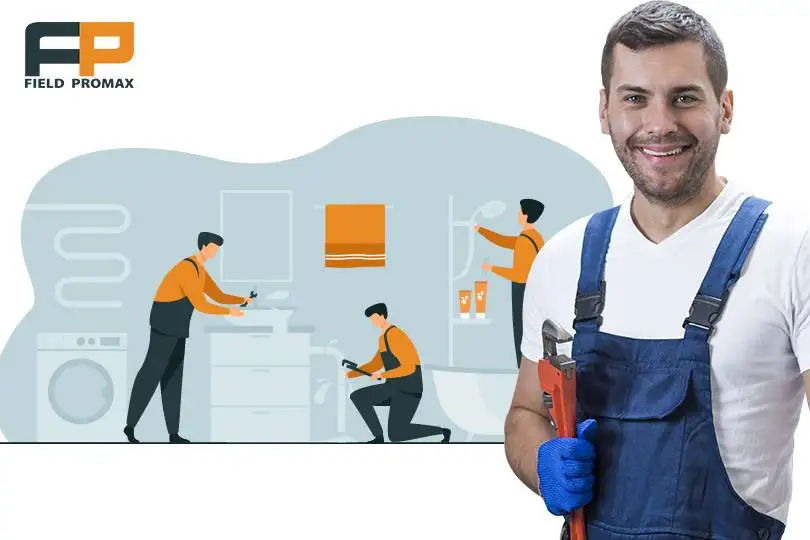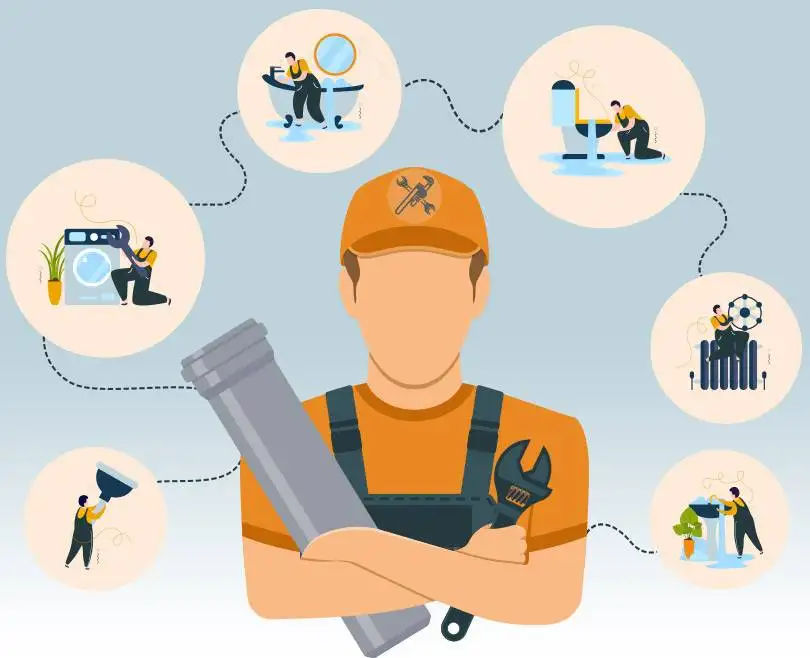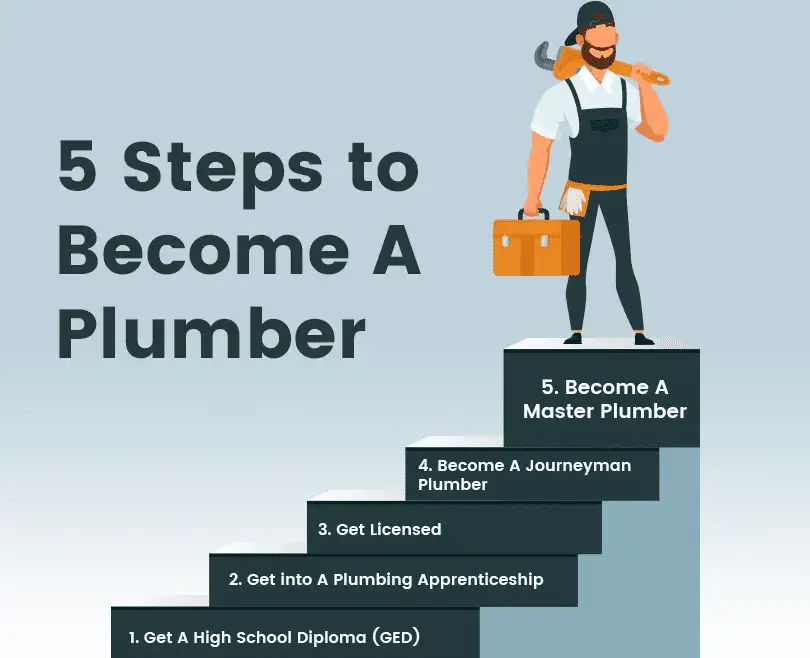How To Become A Plumber: Step-by-Step Guide to Start Your Career

Plumbing as a career has limitless potential. But to become successful in this trade, you need to take the right steps. To this end, it is essential that you learn how to become a plumber by following the right process.
When you choose a career path, there are a lot of things you need to consider. First, you need to figure out whether you have what it takes to do the job. You must also consider whether you can persevere in your chosen field. But most importantly, you need to make sure that the path you are taking has steady demand. If people do not need the work you do after a certain time, there is no point in investing your precious time and effort into it. To this end, the decision to become a plumber is always a safe and surefire option.
No matter where you are located, people will need clean water conveniently and, therefore, will require proper plumbing systems. But pipes, faucets, and other plumbing equipment are bound to wear and tear. On the other hand, new properties are being built all the time, and they will need plumbing as well. So it is safe to assume that you will always have work.
There is, however, a little hiccup. As many plumbing jobs are there, so are plumbers. It is a highly competitive industry, regardless of your location. Therefore, if you want to be a successful plumber, you must ensure that you are a good plumber, i.e., that you have the skill and knowledge to stand out in the competition. So, it is not enough to know how to be a plumber; you need to learn how to be a good one!
Ready to get started with Field Promax?
Sign Up FreeIt may sound scary. But the actual job is not that difficult. With proper guidance, you can easily become a plumber and start your career. And this is exactly what this blog will help you with.
After conducting thorough research on market best practices and consulting experienced plumbing professionals, we have put together a comprehensive guide to help you start your career as a plumber. All you need to do is understand the basics of the trade of plumbing and then follow the five simple steps we have curated for you. We have also tried to provide a rough idea of the job opportunities and salary profile you will get as a plumber.
That is not all! We also have a secret tip in case you want to start your own plumbing business. So make sure to read till the end. But for now, let’s start with the basics of how to become a plumber.

What Does A Plumber Do: Job Responsibilities
Plumbers are responsible for installing, repairing, and maintaining water and gas lines, heating systems, septic systems, and other related fixtures in both residential and commercial properties. They also carry out the tasks of inspection and diagnosis of plumbing systems, as well as design and construct plumbing systems to make sure they follow all safety and hygiene regulations and public health codes. Most of the time, they work alone and may have to travel long or short distances to carry out repair work. Employers may also expect plumbers to set up toilets, sinks, faucets, bathtubs, and other similar fixtures.
Here are some of the major job responsibilities of a plumber:
- Going to people’s homes or businesses to diagnose and fix plumbing issues
- Giving Estimates of repair works
- Finding out what’s wrong and suggesting the best long-term solutions
- Plan new plumbing installations by interpreting designs/blueprints.
- Installing plumbing fixtures like pipes and water taps, as well as necessary other accessories
- Using special testing tools to diagnose plumbing issues
- Fixing different plumbing-related tools
- Cutting, assembling, and welding tubes, pipes, fittings, and other similar parts
- Making sure that all work meets all rules, codes, and regulations
Types of Plumbing Jobs: Plumbing Job Opportunities
In addition to knowing how to become a plumber, you also need to know the types of jobs available to you. In fact, plumbing is a generic term. Plumbers often specialize in a variety of areas of expertise.
Some of the most sought after plumbing specializations include:
- Commercial plumbing
- Residential plumbing
- Service and repair plumbing
- Sanitation plumbing
- Water supply plumbing
Once you start your apprenticeship and learn the various aspects of plumbing, you will be able to figure out which area of expertise you want to specialize in as per your skills, preferences, and the demands in your area.
Plumbing Job Salary
Before you make up your mind about becoming a plumber, you may have a few pressing concerns. And the question, “How much does a plumber make?”
Honestly, there is no single right answer to this question. Plumbers’ salaries vary depending on their location, education, expertise, and experience. But in general, the average salary of a plumber in the USA is around $28.49 per hour. According to the data from the Bureau of Labor Statistics, a trained and experienced plumber can make up to $59,880 annually, which makes this career path a lucrative one.
Another thing that you might wonder about is how long does it take to become a plumber? In the US, a high school graduate may immediately start a paid plumbing apprenticeship. This means that instead of spending their time in school, plumbers can learn on the job and make money at the same time. However, most states require plumbers to complete five years of paid apprenticeships before they can start working independently.
Plumbing Job Requirements
Unlike a number of other trades, you don’t need a college degree to become a plumber. Most states in the United States only require a high school diploma or an equivalent degree to start a plumbing apprenticeship. However, candidates must demonstrate adequate proficiency in basic mathematics and algebra.
Apart from the educational background, there are a few more plumber requirements an aspirant must possess. Since plumbing is a highly physical occupation, aspiring plumbers must be able to do extensive physical labor and have a healthy back, shoulders, and knees. In addition to physical capabilities and tenacity, they must have sound problem solving skills, good communication skills, and dexterity. They must know their way around a toolbox and quickly learn how to use different equipment.
5 Steps to Become A Plumber

Now that you know what kinds of jobs you can get as a plumber, as well as the average salary, job responsibilities, and basic requirements of becoming a plumbing professional, let’s focus on the most important question at hand how do you become a plumber?
Although the job is highly technical and requires licensure, becoming a plumber is actually easier than you think. You just need to follow these five simple steps.
1. Get A High School Diploma (GED)
You can become a plumber if you already have a high school diploma (GED) or if you are still in high school and trying to get your diploma. People who haven’t graduated from high school can also get a GED. Plumbers should know a lot about science, technology, computers, and math, among other things. If your school provides courses on drafting, you might want to take them to learn more.
For structured, local training in Bucks County, PA, consider a hands-on plumbing school offering plumbing and heating technology courses that align with apprenticeship prep and career placement.
Even though college isn’t usually required, people who want to be plumbers may have to go through very specific professional training. To do this, you can sign up for plumbing vocational classes at an authorized technical college or vocational school. These classes will teach you about drainage systems, water delivery, and how to use piping tools.
2. Get into A Plumbing Apprenticeship
After you finish your vocational schooling, you might want to do an apprenticeship in plumbing. Before you can get an internship, you usually have to spend a certain number of hours in the classroom. But the number of hours changes from one apprenticeship to the next. During an apprenticeship, you will learn about safety regulations, plumbing codes, plumbing processes, and other specialized skills on the job.
3. Get Licensed
Once you complete five years of paid apprenticeship, you can take a licensing exam and obtain a plumbing license.
In many states, a plumber must have a license. Depending on where you live, you have to take a certain amount of classroom hours, get hands-on experience, and finish an apprenticeship before you can take a test to get a license. This test measures how skilled a plumber is and how well they know plumbing codes and processes.
4. Become A Journeyman Plumber
Once you complete your apprenticeship and get a license, you can become a journeyman plumber. Journeyman plumbers are not like apprentices, who can only work under the guidance of a master plumber. Instead, they can work on their own.
5. Become A Master Plumber
The next stage in your career is to get a master plumber’s license. After working a certain number of hours as a journeyman plumber, you can take the licensing test to become a master plumber. This usually takes between two and five years. With this plumbing license, a master plumber will be able to offer more advanced plumbing services, lead crews, and specialize in a certain area of plumbing.
Different states have different rules about what a master plumber has to do, so check with your local licensing board to find out what the rules are in your area. In some cases, you may need to take more classes or get plumbing training. To become a master plumber, a person must pass both a written and a hands-on test, which may require some fees. Some states may also require background verification.
Start Your Own Plumbing Business
Once you become a master plumber and gain sufficient experience, you may start your own plumbing company. You can work as a subcontractor for different plumbing companies or pick your own projects to run an independent business.
To start your own business, here is what you need to do:
- Conduct market research
- Write a business plan
- Choose a name and business structure for your plumbing company
- Get registered
- Open a business bank account and apply for credit card
- Get necessary insurance
- Hire plumbers
- Buy tools and equipment
- Arrange vehicles for your field teams
- Create a business website and social media pages for your business
- Enlist your business on local listings (e.g. Google My Business, Yelp, etc.)
- Promote your business
Wrapping Up: Secret Tip to Making Your Plumbing Business Successful
By now, you have learned how to become a plumber and how to start your own business. But how do you achieve success in this field?
As already mentioned, plumbing services are always in demand, and, therefore, it is a highly competitive trade. No matter where you start your business, there will always be one or more rival companies. So, you need to stand out from the crowd. Plus, you must find a way to make your business sustainable, i.e., continue to grow and earn profit.
The secret to securing a competitive advantage and ensuring sustainable growth is best-in-class service quality and consistent customer satisfaction. And you can achieve both with one single solution plumbing business software.
And that, right there, is our secret tip for you. If you want to provide the best service, make sure your workflow is efficient. The best way to do this is by harnessing the power of automation, and no one else does this better than Field Promax.
Specifically designed for plumbing businesses, Field Promax is a cloud-based field service management software that effectively streamlines your workflow. Thus, you achieve maximum efficiency, productivity, and flawless service quality. Plus, it reduces your overhead costs drastically.
So, if you want your business to be the best, sign up for Field Promax now.
Want a personalized demo?
See how Field Promax can transform your field operations